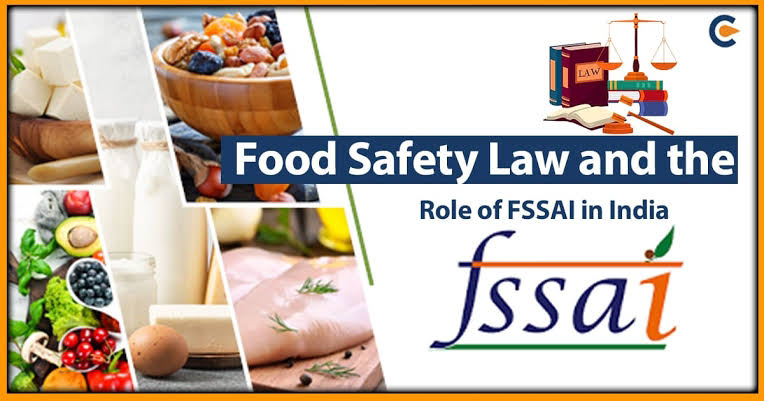Safeguarding Health: Combating Food Adulteration and Embracing Organic Alternatives
Author: Lawvanyaa Kannan, a student at Symbiosis Law School, Hyderabad
Introduction:
In the hustle and bustle of modern life, the food we consume has become a potential danger rather than a source of nourishment. Food adulteration, the deceptive practice of adding impurities or substandard ingredients to food products, has infiltrated our daily diets. In this article, we will explore how common food items like milk, cooking oil, cereals, and pulses often fall victim to adulteration, and how we can counter this threat by adopting organic alternatives.
The Silent Culprit: Food Adulteration
Milk Adulteration: Milk, often touted as "nature's perfect food," is not spared from adulteration. Unscrupulous suppliers dilute it with water, add starch, urea, and even detergents to mimic higher fat content. The consumption of adulterated milk can lead to digestive issues, weakened immunity, and long-term health problems, particularly in children.
Cooking Oil Contamination: Cooking oil, a kitchen essential, is frequently adulterated to maximize profit margins. Common adulterants include cheaper oils or the recycling of used ones, sometimes mixed with harmful chemicals. Such adulterated oil poses serious health risks, contributing to heart diseases, obesity, and digestive disorders.
Cereals and Pulses: A Hidden Threat: Even seemingly wholesome staples like cereals and pulses are vulnerable to adulteration. Producers often substitute inferior quality products or mix in foreign substances. This dilutes their nutritional value, resulting in malnutrition and digestive troubles among consumers.
The Sugar Paradox: Sugar, a common household item, is often adulterated with chalk powder, sand, and harmful chemicals. The consumption of adulterated sugar can lead to digestive issues and long-term health problems, including diabetes and obesity.
Spices and Condiments: Spices and condiments, which enhance the taste of our dishes, are not immune to adulteration. Artificial colors, low-quality additives, and fillers are frequently added. Consumption of adulterated spices can result in allergies, skin irritations, and digestive woes.
Embracing Organic Alternatives:
As the alarming truth about food adulteration emerges, it is vital for us to take proactive steps to protect our health and well-being. One of the most effective ways to do this is by embracing organic alternatives.
Why Choose Organic?
Organic products are grown and processed without the use of synthetic chemicals, pesticides, and genetically modified organisms (GMOs). They are produced through sustainable farming practices that prioritize soil health and biodiversity. Organic food is free from the contaminants and adulterants that plague conventional products.
Benefits of Organic Products:
Healthier Choices: Organic foods are free from harmful chemicals and additives, ensuring that you receive the full nutritional benefits without compromising your health.
Better Taste: Many people find organic products to have a more natural and robust flavor compared to their adulterated counterparts.
Environmental Responsibility: Organic farming practices are gentler on the environment, promoting soil health, reducing water pollution, and preserving biodiversity.
Supporting Ethical Practices: Choosing organic products supports ethical farming practices and fair labour conditions for agricultural workers.
Reduced Health Risks: By opting for organic, you reduce the risk of consuming contaminated or adulterated products that can harm your health over time.
Conclusion:
Food adulteration is a hidden menace that jeopardizes our health and well-being. Adulterated products like milk, cooking oil, cereals, and sugar expose us to digestive problems, nutritional deficiencies, and long-term health risks. By embracing organic alternatives, we take a powerful stand against this threat. Organic products not only offer health benefits but also contribute to sustainable farming practices and environmental conservation. It's time to make a conscious choice for our health and the planet by opting for organic options whenever possible. Together, we can safeguard our health and create a brighter, more sustainable future.




![Freedom of Speech in India [Indian Supreme court and Law of Sedition]](https://blogger.googleusercontent.com/img/a/AVvXsEiGLLUmLKq5Da6xDZplasOZHKRj-jOhWPkoeuy0_Eq757tUpOiHz-xooXwIlAjF0-hmBfi-TtMIv6on_sVgBXVq4wbWwnbsqLOcNX22S8C2aSq-ZuK3vn9wWAx8tXByYOBfwc0hs6b8RJV84YNFG2greouGKjup6g8kN-xVlchW33VHdSSmrhLC1BUEVbGp=w680)





